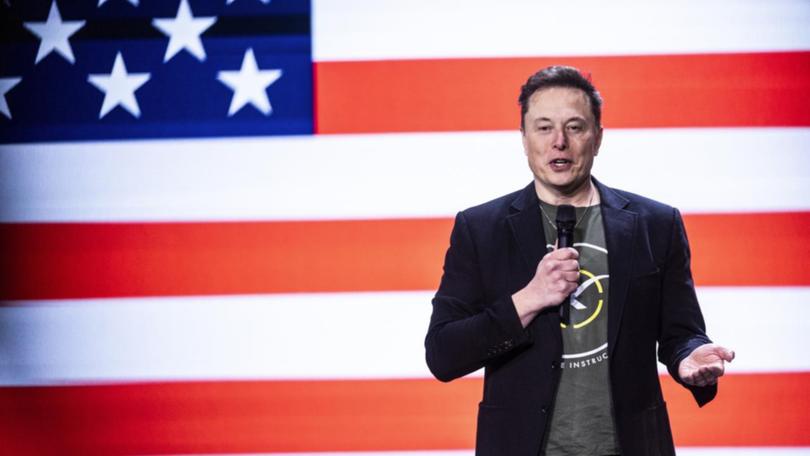THE ECONOMIST: Elon Musk’s $1 million voter lottery and why it is bad for democracy
Lots of reforms would benefit America’s democracy. Giving billionaires more influence over the outcome of elections is not one of them.

With less than two weeks to go, America’s election remains a coin-toss. If anything, though, the coin now slightly favours Donald Trump. Our election-forecast model puts him ahead, for the first time since August.
When the race is this tight, the list of things that could prove decisive is long. Among them is Elon Musk’s disingenuous scheme to induce Americans to vote for Mr Trump with a chance to win $US1 million ($1.5 million).
Mr Musk could have any number of motives. He runs a company that makes electric vehicles (EVs). Mr Trump wants to put huge tariffs on foreign cars and frequently discourages Detroit’s automakers from producing EVs. A Trump victory could knock out Tesla’s competition, juicing its share price in a way that the company’s underwhelming recent product launches have failed to do.
Sign up to The Nightly's newsletters.
Get the first look at the digital newspaper, curated daily stories and breaking headlines delivered to your inbox.
By continuing you agree to our Terms and Privacy Policy.Mr Musk also has eugenic views about gifted people having too few children, and he has used his ownership of X to promote — perfectly legally — objectionable opinions about the replacement of white voters with immigrants.
The scheme works as follows. Voters in the seven swing states are invited to sign a petition in support of the First Amendment (free speech) and the Second Amendment (guns). No matter that neither clause is in imminent danger from Congress, from the conservative Supreme Court or the Glock-toting Kamala Harris.
In adding their names — and provided they are registered to vote — they receive what is, in effect, a lottery ticket with a chance to win a daily prize of $US1m, funded by Mr Musk. The intention seems to be to get unregistered voters to register. Voting for Mr Trump is optional (and mischievous Democrats may wish to try their luck). But paranoia about these particular amendments is associated with the right; and given that Mr Musk is one of the former president’s most prominent surrogates, who has even inspired a distinct line in MAGA merchandise, it is clear who is the intended beneficiary.
This sounds sketchy, but is it illegal? Federal election law prevents people from buying votes, whether the payment is in cash, crypto or in the form of a lottery ticket. Paying someone to register to vote is also forbidden. But rewarding petition signers in this way is a metallic-silver area, even if the intent seems clear.
America’s campaign-finance law is so loose that managing to break it would be a feat. No doubt a sympathetic court could conclude that the scheme constitutes speech and is therefore protected under the First Amendment. And someone as deep-pocketed as Mr Musk could fund a team to keep that argument going long enough for the point to be moot if Mr Trump wins.
Whether it is a good idea is a different matter. Vote-buying was once rife in America, often in the form of alcohol, although cash was splashed, too. “The American polling place”, says one study, “was thus a kind of sorcerer’s workshop in which the minions of opposing parties turned money into whiskey and whiskey into votes.” An achievement of democratic reformers in the late-19th and early-20th centuries was to get rid of these practices. Schemes like Mr Musk’s are still alive in the 21st century, but they are more commonly found in Kinshasa than Kenosha.
The Supreme Court has deregulated campaign finance in the past few decades, but it did so when norms against vote-buying appeared irreversible. That assumption may yet prove to have been mistaken.
Mr Musk’s wheeze looks certain to spawn imitators in 2028. Both parties have billionaires who could fund similar lottery schemes. Lots of reforms would benefit America’s democracy. Giving billionaires more influence over the outcome of elections is not one of them.
